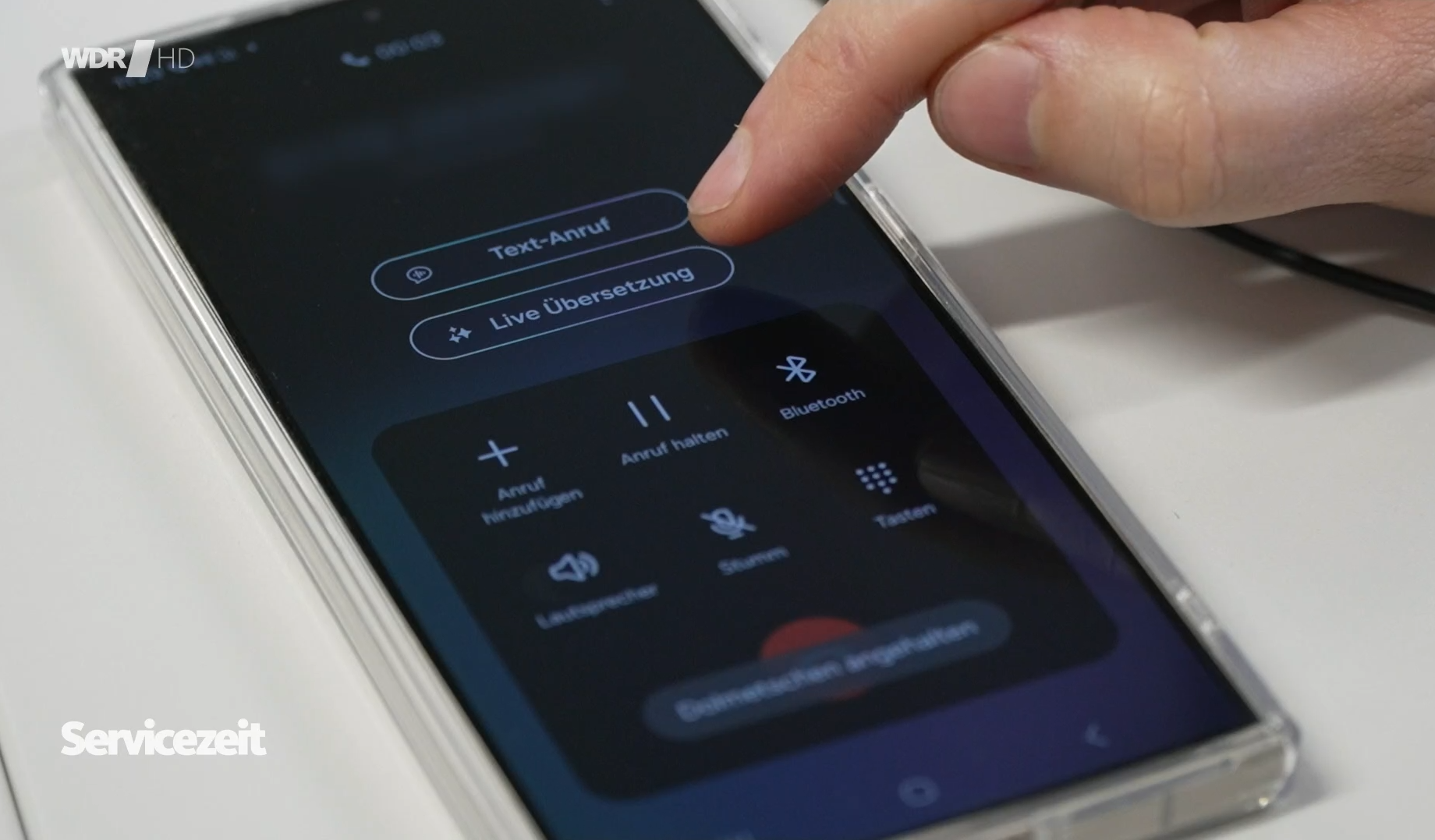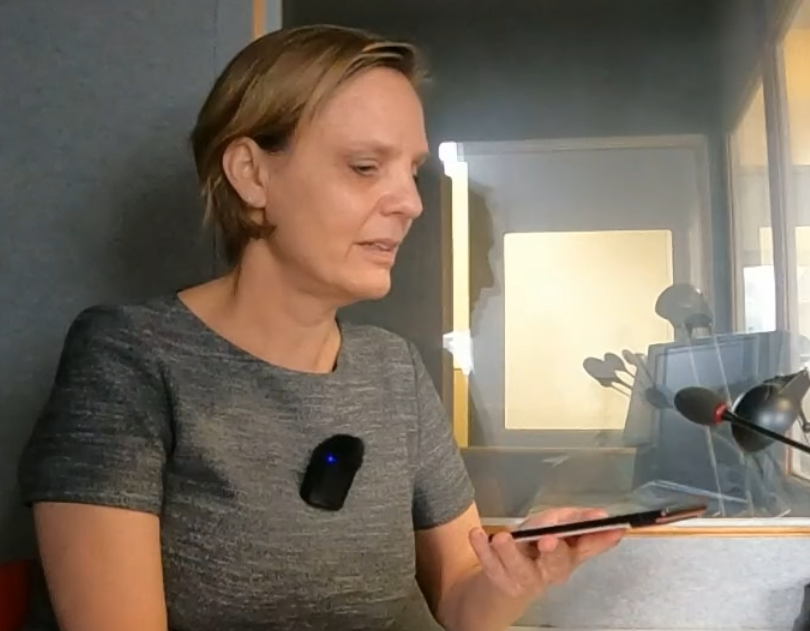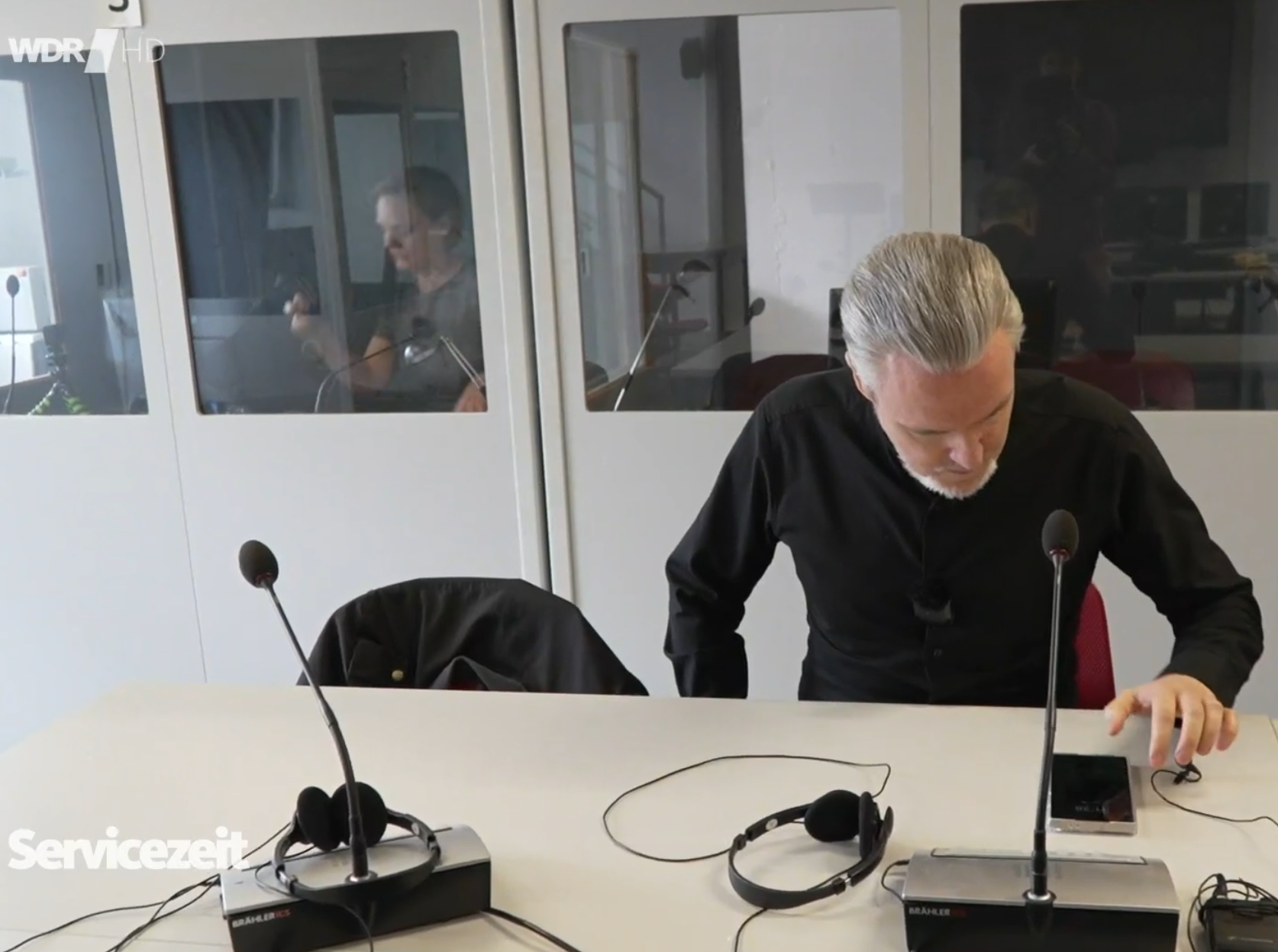This month at the Technical University of Cologne we took a closer look at some live translation apps, in particular Galaxy’s live translation app for phone calls. Prof. Ralph Krüger and I, together with journalist Steffen Berner, wanted to find out how useful they are. It was both an interesting and entertaining experience.
Obviously, nothing beats a real, human translator or interpreter, with a human brain understanding what a conversation is actually about, with all its nuances and subtext. But then we can’t be everywhere, can we? So having a pocket-sized multilingual companion can certainly be very useful.
Spontaneously spoken language is beautiful and creative, but also capricious and sometimes unintelligible – so make sure you follow some basic rules to make the translation app’s “life” easier:
1. Speak slowly and clearly – don’t fire away as if you were chatting over the fence with your neighbour.
2. Make sure word boundaries are recognisable. Otherwise it happens to them all may be turned into it happens to the mall.
3. Accents are harder to handle than standard language (although I have seen transcription tools convert the German Wat is dat into Was ist das!)
4. Use simple and straightforward language. I need your armrest to go down is more likely to be misunderstood than Please put your armrest down.
5. Make sure you get your syntax right. If you need to correct a sentence, just repeat the complete sentence instead of confusing the system with half-sentences randomly put together. To get to the cathedral, you best turn left when leaving the building and then … or no … turning right you will see the river, you better go there. You better say: To get to the cathedral, you best turn left when leaving the building and then … no. – Break – To get to the cathedral, leaving the building you turn right. You will see the river then.
6. Be explicit. Say Let’s meet at four o’clock, or maybe five o’clock instead of saying Let’s meet at four or five (which was understood as 4:05 by the app).
7. Avoid anything that goes beyond the mere word level, like irony (Yeah, great! can be a positive statement or an ironic negative one), jokes, or idioms (not my cup of tea).
8. Remember the app can’t see you or the situation you are in, for example when you are gesturing or pointing in a certain direction when showing the way. A little hoarse and a little horse are hard to interpret without understanding the context or topic of the conversation.
To watch Steffen’s entire clip, broadcasted on 26 March 2024 at WDR’s TV programme Servicezeit, click here (duration aprox. 8 minutes, starting at 13:27).
Looking forward to hearing your thoughts!
————————–
About the author:
Anja Rütten is a freelance conference interpreter for German (A), Spanish (B), English (C), and French (C) based in Düsseldorf, Germany. She has specialised in tec, information and terminology management since the mid-1990s and holds a PhD on information and knowledge management in conference interpreting.



Leave a Reply